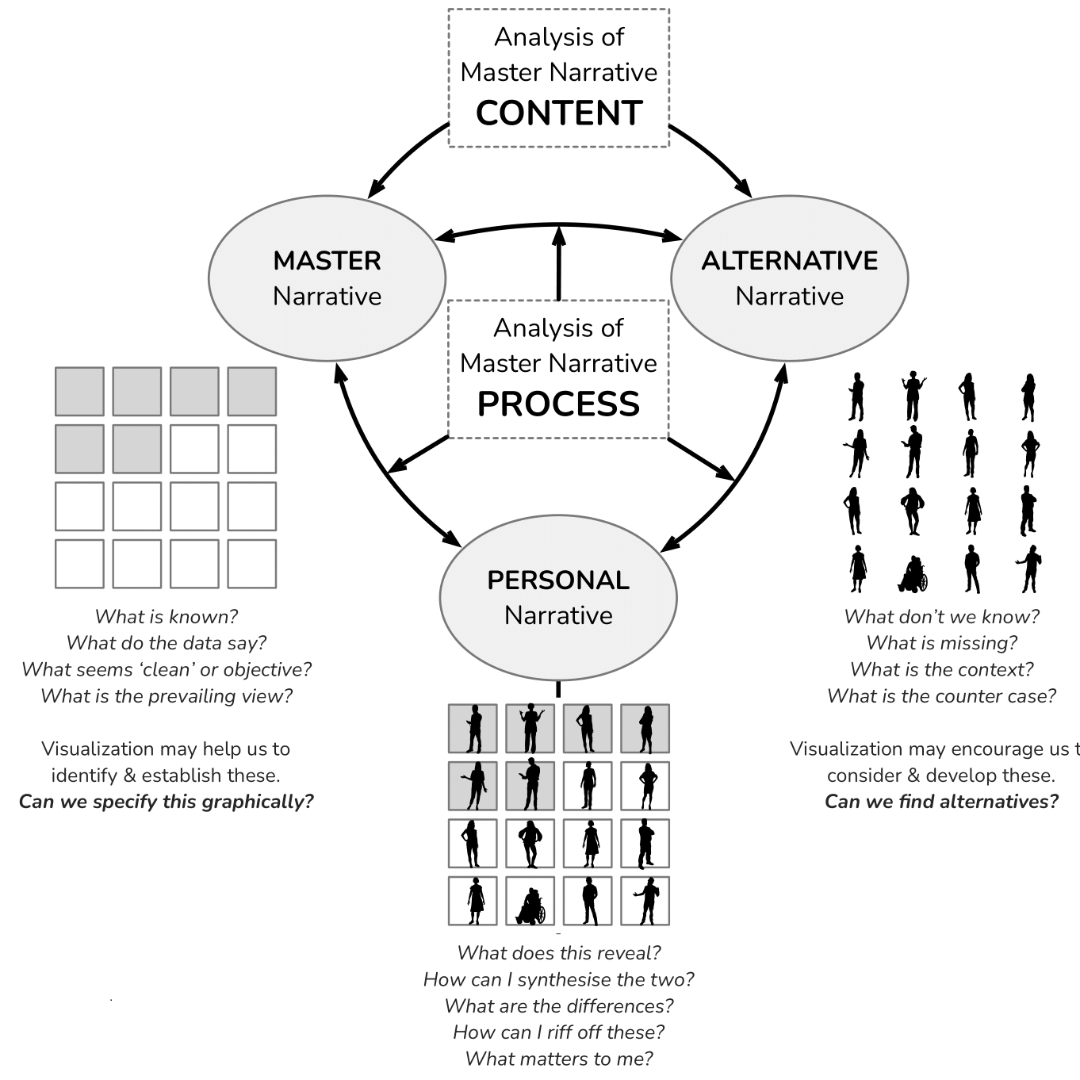Visualising Lived Experience: Learning from a Master andAlternative Narrative Framing
Mai Elshehaly - City, University of London, London, United Kingdom
Mirela Reljan-Delaney - City, University of London, London, United Kingdom
Jason Dykes - City, University of London, London, United Kingdom
Aidan Slingsby - City, University of London, London, United Kingdom
Jo Wood - City, University of London, London, United Kingdom
Sam Spiegel - University of Edinburgh, Edinburgh, United Kingdom
Screen-reader Accessible PDF
Download preprint PDF
Room: Bayshore I
2024-10-14T12:30:00ZGMT-0600Change your timezone on the schedule page
2024-10-14T12:30:00Z

Full Video
Abstract
Visualising personal experiences is often described as a means for self-reflection, shaping one’s identity, and sharing it with others. In policymaking, personal narratives are regarded as an important source of intelligence to shape public discourse andpolicy. Therefore, policymakers are interested in the interplay between individual-level experiences and macro-political processes that play into shaping these experiences. In this context, visualisation is regarded as a medium for advocacy, creating a power balance between individuals and the power structures that influence their health and well-being. In this paper, we offer a politically-framed reflection on how visualisation creators define lived experience data, and what design choices they make for visualising them. We identify data characteristics and design choices that enable visualisation authors and consumers to engage in a process of narrative co-construction, while navigating structural forms of inequality. Our political framing is driven by ideas of master and alternative narratives from Diversity Science, in which authors and narrators engage in a process of negotiation with power structures to either maintain or challenge the status quo.